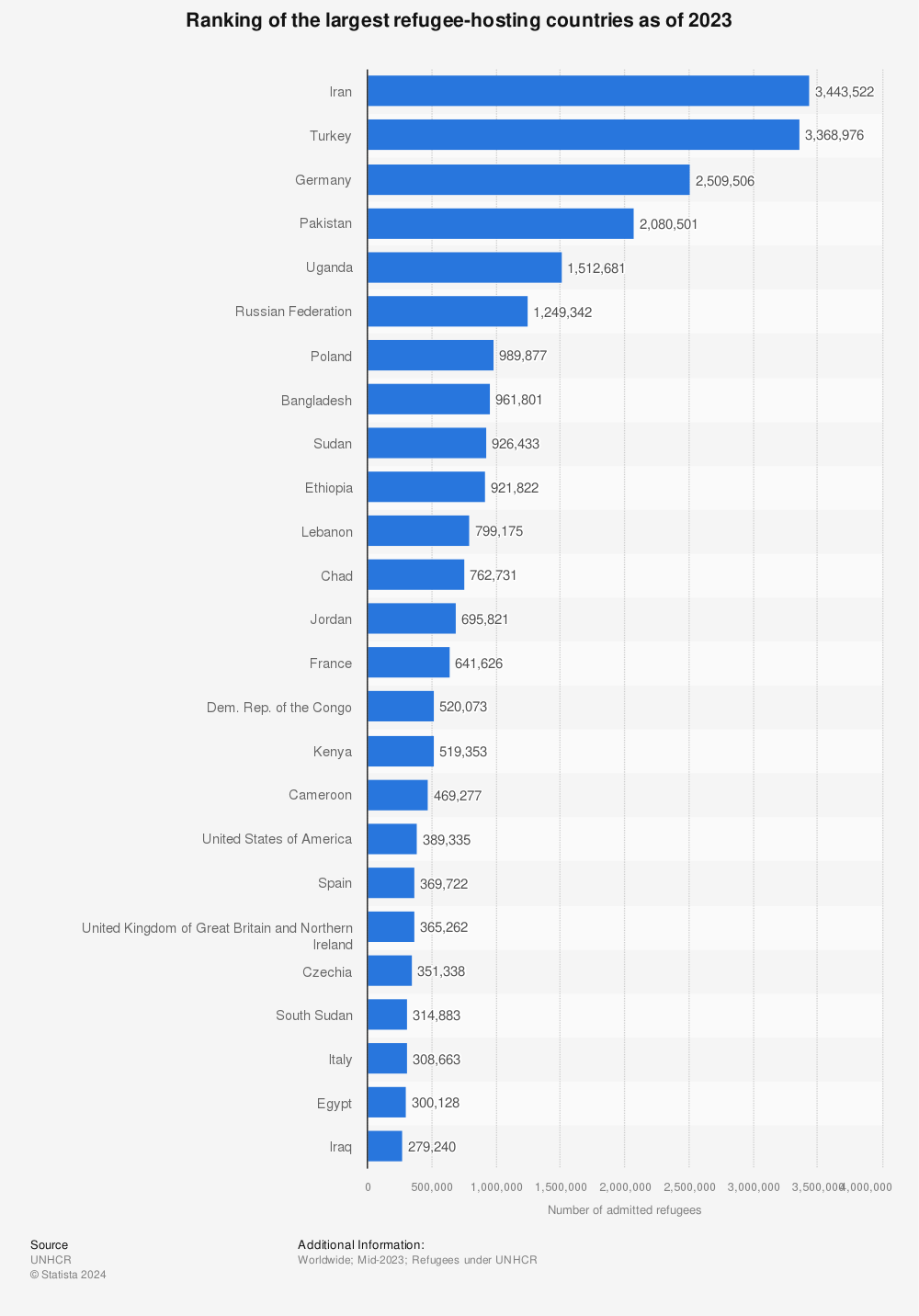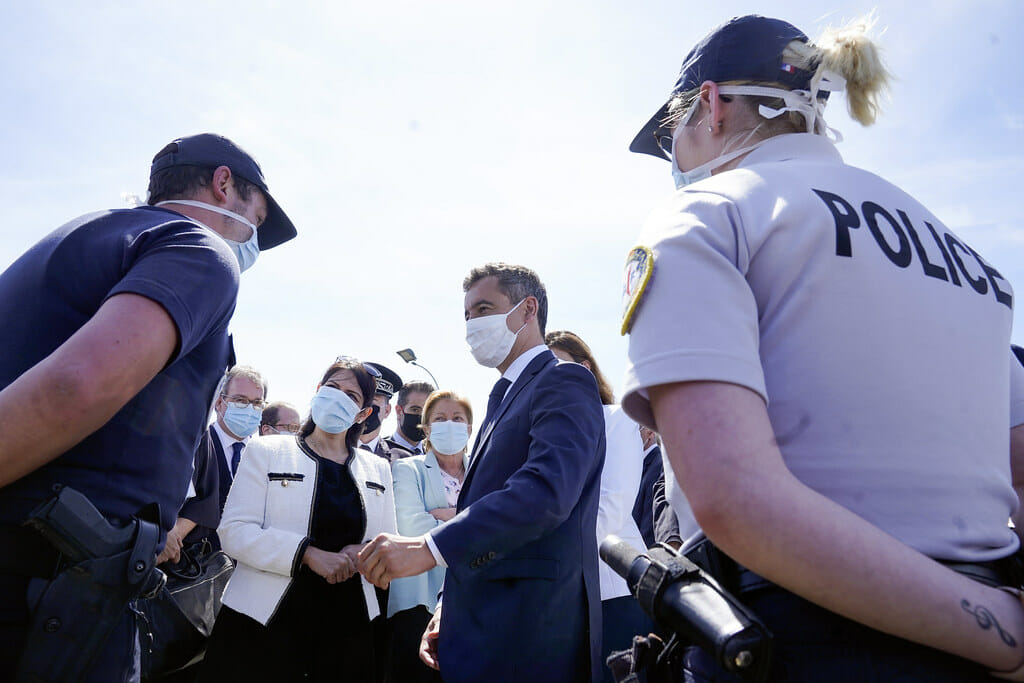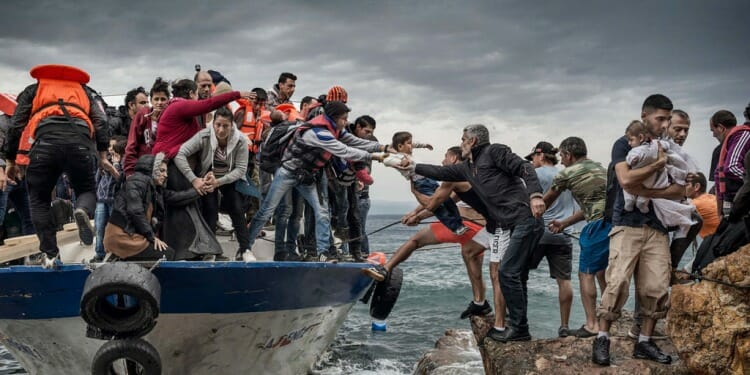At the time of writing, news cycles have been saturated with stories of refugees clamouring at the borders of Europe and being beaten, exploited or killed for their efforts. It would be easy to blame the violence on an uptick in illegal crossings due to factors like the resurgence of the Taliban, the colossal implications of Covid-19 and a world embroiled in conflicts. However, if you look at the news cycle more closely, you will notice that the violence is not just an unfortunate consequence of migration patterns. It is also the result of an intensifying war against human rights across European countries.
A €350m border wall in Poland, violent crackdowns in Libya and state-endorsed impunity in the UK are just a fortnight’s worth of refugee rights violations in Europe. The violations are defended as necessary actions to stem the unbridled flow of immigrants that “threaten” European borders.
Whilst the number of refugees reaching Europe has increased and consequently dominated the headlines, in reality, few stay in Europe. A large majority of the world’s 82 million forcibly displaced people reside in poorer countries.
In the first half of 2021, 85,700 people fled their homes and made the perilous (and illegal) journey across European borders. This may sound like a hefty sum of people, but more people live in my town. In fact, it’s only 0.01% of the European population. The number of refugees permanently living within European Union (EU) borders still only reaches 0.06% of the EU population.
Compare that to Lebanon, which while ensnared in its own humanitarian crisis, counts 12.9% of its population as refugees. In fact, among the 12 countries hosting the largest refugee populations, only one is European.

The reports of deaths of refugees in the headlines aren’t a result of an uncontrollable descent of migrants on Europe’s borders, they’re a result of the way Europe views and responds to migrants. Recent evidence has shown that unlawful pushbacks and violence against refugees are systematically taking place at European borders with the bloc’s complicity.
Poland: If a new wall doesn’t keep refugees out, new legislation will force them out
As of October 15, the pushbacks are not just commonplace, but legal at the Polish border. In breach of international and EU law, the Polish parliament has passed legislation allowing border guards to force refugees out of the country if they are caught crossing the border illegally.
According to international law, migrants have a right to claim asylum and cannot be forced back to countries where their lives may be endangered. The EU’s home affairs commissioner acknowledged the need for EU countries to protect the external border whilst advocating that fundamental rights and the rule of law must be upheld.
The legislation comes a day after the body of a Syrian migrant was found near Poland’s border with Belarus. At least six others have died at the border since August whilst many others remain trapped between the two states, pawns in a cruel and callous game.
Leaders across Europe have accused Belarusian President Alexander Lukanshenko of waging a hybrid war against the bloc by flooding its external borders with migrants. They claim Lukashenko is preying upon victims of conflict-torn and impoverished countries, inviting them to Belarus and then escorting them to the Polish border.
Earlier this year, the EU placed economic sanctions on Belarus in response to escalating human rights violations and the repression of civilians and democratic processes. Lukashenko appears to have welcomed the title of authoritarian, exploiting the lives of refugees to exact his revenge on the European Union, who sadly seem just as willing to play.
Invoking sovereign rights and a state of emergency, Poland has ignored criticisms of human right violations and continued to introduce measures to keep migrants out. The Polish Council of Ministers has approved a draft legislation to spend €350m constructing a new wall at the border.
At the time of writing, a temporary fence of razor wire and a continuous patrol of officers wait for migrants at the Polish border. As temperatures drop below freezing, refugees are taken back and forth between Poland and Belarus, neither country filing their claims and accepting responsibility.
Lukashenko may indeed be weaponizing migrants to destabilise the EU in retaliation to its sanctions. However, migrants could not be abused and exploited in this way if Lukashenko was not aware that Europe was incredibly unprepared, culturally and financially, for a wave of immigrants.
Anti-immigration rhetoric has flourished across Europe since the migrant crisis first hit headlines in 2015. Despite being a net positive to the economies of host countries, many Europeans are becoming increasingly hostile to the assimilation of refugees.
European leaders are incredibly aware that the actions of their populations and corporations have disproportionately contributed to the coming climate crisis. They are acutely aware that this crisis will create a surge in environmental migrants, perhaps even a billion by 2050. Despite this knowledge, the countries seem more intent on wiping their hands clean of refugee blood than addressing the causes of their displacement.
Related Articles: Everything Wrong With the British Press’ Migrant Narrative | Europe’s Flight from the Refugee Crisis
The deaths of refugees will receive no justice in new UK policies

Priti Patel, the UK’s Home Secretary, wants to literally enshrine this impunity into law. Her proposed nationality and borders bill includes a provision that will give officers legal protection if a migrant drowns as a result of pushback tactics. Border Force staff have been trained to turn boats back to French waters.
Countries have a legal obligation to file asylum claims of migrants who reach their borders which is why the Border Force intervenes before asylum seekers can reach UK territory. It appears that Patel does not have an issue with explicitly violating international law though. Her new bill breaches international and domestic law in at least 10 different ways.
Most anti-immigration policies cite a crackdown on human trafficking as their rationale. Patel’s bill does indeed include tougher sentences for human smugglers, but it also includes a system that would mean those entering the UK through illegal means could have their claims ruled inadmissible, receive a jail sentence of up to four years, have no recourse to public funds and family members barred from asylum.
❗️Priti Patel wants to send refugees to offshore camps❗️
Here's why this is wrong, explained by someone who's seen it before, our CEO, @SonyaSceats.
We have to do something about this. Sign the petition today: https://t.co/sIUtOCTtFt pic.twitter.com/czNFDlRIkB
— Freedom from Torture🧡 (@FreefromTorture) June 30, 2021
The human rights group Freedom From Torture comissioned a 95 page report from leading immigration lawyers. They found that the The bill breaches the UN Refugee Convention as well as the European Convention on Human Rights (ECHR) in various ways.
“This bill represents the biggest legal assault on international refugee law ever seen in the UK.”
“The principle at the heart of the bill is the penalisation, both criminally and administratively, of those who arrive by irregular means in the UK to claim asylum,” they said. “The basis for the attack on irregular arrival is that refugees should use safe legal routes. But there are no such safe legal routes. There is no such thing as a refugee visa.”
Over 18,000 people have made the irregular crossing to the UK in 2021. They have been met with underfunded and underprepared facilities. Those who crossed the channel this past weekend spent their first night in “crowded, unsafe and unsanitary conditions.”
The Dover Independent Monitoring Board (IMB) reported refugees sleeping on wooden benches and tent floors in a facility where “food was insufficient and there was no running water and no provision for washing” while chemical burns and other injuries went unnoticed and untreated.
Enver Solomon, the chief executive of the Refugee Council, said: “The men, women and children arriving in Dover are often exhausted, traumatised and can also have terrible physical injuries. They have fled war and oppression in search of safety and must be given the care, help and humane response they need and deserve.”
When Europe wants to wash its hands, Libya does the dirty work for it
The conditions in the UK may be considered luxurious compared to their counterparts in Libya. Detention centres in the North African country have been filled with refugees pushed back from European borders for years.
In 2020 it became clear that Europe’s border protection agency, Frontex, was colluding with the Libyan coastal guard to send refugees back to Libya. Frontex aircrafts would locate refugee vessels and then alert Libya, even though other merchant ships or aid organisations were in the area and could reach the refugees quicker. Not only did this put the lives of the refugees at risk, but it dragged them back to a lawless country.
Unlike European states, Libya is not party to the UN Refugee Convention, it has no refugee law or asylum system which means that all asylum seekers are considered “illegal migrants” and liable to arrest, detention and abuse.
Recent investigations have found that Libya’s detention centres are unsanitary, dangerous and inhumane. In Shara Zawiya, over 550 women, children and babies have been crammed into cells. 120 inmates share just one toilet and buckets of urine sit at the doors of the cells.
In Al-Mabani, the detention centre was so crowded the men were forced to stand whilst women and children were held outside without water or shade. Recent crackdowns on “illegal migrants” have flooded these centres as Libyan authorities arrested 5,000 refugees in the past week. During the raids refugees were subject to severe physical and sexual violence.
According to a UNHCR report, in the centres, “all migrants – men and women, boys and girls – are kept in harsh conditions, some of whom die. Some children are held with adults, placing them at high risk of abuse. Torture (such as electric shocks) and sexual violence (including rape and forced prostitution) are prevalent.”
Chaos in Tripoli’s Ghot Shaal and the surrounding areas as hundreds of migrants flee from prison while thousands more march in the streets in protest against government crackdown on illegal migration pic.twitter.com/cXY57BiTMl
— The Libya Observer (@Lyobserver) October 8, 2021
The situation has only escalated. On October 6, 500 refugees escaped from the Gheriyan centre as guards opened fire, leaving six dead. Two days later another mass escape occured at the al-Mabani centre, this time eight were killed. As the UN made a statement calling for a thorough inquiry into these shootings, the Libyan Coast Guard reported 15 refugees had died attempting to cross the Mediterranean. The sea has become the worst maritime cemetery as the chances of dying increased from 1 in 42 in 2017 to 1 in 18 in 2018, according to UNHCR.
Even before the shootings, an independent fact-finding mission commissioned by the UN’s Human Rights Council revealed on October 4 that “murder, enslavement, torture, imprisonment, rape, persecution and other inhumane acts committed against migrants [in Libya] form part of a systematic and widespread attack directed at this population, in furtherance of a state policy,” concluding that these acts may amount to crimes against humanity.
As Human Rights Watch writes, “Where the EU, Italy and other governments have knowingly contributed significantly to the abuses of detainees, they have been complicit in those abuses.”
Is any of this legal?
EU institutions are aware of the abuse and inhumane conditions that are rife in Libya. The EU has provided support intended to alleviate these conditions but much of these funds have been redirected to patrolling the seas.
UN special rapporteur, Nils Melzer, has also said that “If European countries are paying Libya to deliberately prevent migrants from reaching the safety of European jurisdiction, we’re talking about complicity in crimes against humanity because these people are knowingly being sent back to camps governed by rape, torture and murder.”
Despite a lack of change in Libya, the EU has continued to pursue this flawed strategy as it succeeds in their most valued goal: keeping immigrants out of the EU and keeping the EU out of international courts. Because detention in Libya is indefinite and not subject to judicial review, it is arbitrary under international law.
The pushbacks, the conditions of Libya’s detention centres, the laws and the walls are all illegal. 70 years ago, standing in the wreckage of WW2, countries agreed to protect refugees through the 1951 Refugee Convention. Today, it seems these countries have all but forgotten this convention and the morality that established it.
World leaders allowed a global humanitarian crisis to unfold and when it turned up on their doorsteps they turned their backs. The conflicts and dire conditions that impelled refugees to flee their families, livelihoods and homes need to be rectified. Until then though, global cooperation is needed.
“The catastrophic moral failure of world leaders who dither and squabble among themselves while callously leaving millions of people to suffer in disastrous humanitarian conditions will define their legacy for generations to come,” said Amnesty International
Europe does not need walls, detention centres or political scapegoats. It needs to establish a strong refugee system, accepting refugee claims, resettling the most vulnerable, and providing basics like education and healthcare.
Editor’s Note: The opinions expressed here by Impakter.com columnists are their own, not those of Impakter.com. — In the Featured Photo: Refugees and Migrants aboard fishing boat driven by smugglers reach the coast of the Greek Island of Lesbos after crossing the Aegean sea from Turkey. Featured Photo Credit: Jim Forest










